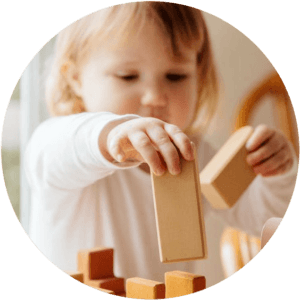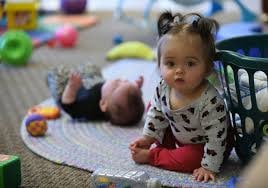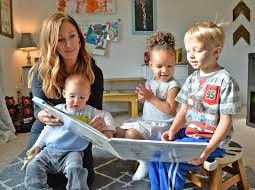As parents, I think we all want to take the best decisions for our children, would you agree? Having a baby in the house and in our lives is joyful and brings us all happiness.
During the first years we spend every moment of every day with our little treasures and most of the time we tend to be very overprotecting. It is normal, they are so small, helpless and it seems like they need you every moment.
But the moment in our lives arrives when we realize that they are growing up and they must start nursery, kindergarten and later on – school. So here is the big question: will you choose to preschool Or home school Your Child?
Maybe you have doubts and are anxious as to how your child will cope with the initial change and separation from you? I will share with you some benefits/disadvantages of attending preschool and I will also discuss with you the idea of homeschooling and it is for you to decide the best course of action.
Benefits Of Pre-Schooling
When children go to Preschool they learn to develop social relationships, they learn to communicate with other children and even to share their toys. They also understand early on to listen to the teachers and follow set out rules.
understand early on to listen to the teachers and follow set out rules.
Of course the development of their academic skills is all important and when they attend Preschool they learn shapes, letters, numbers and many other areas of essential knowledge. Also, they will learn manners, i.e to raise their hands when they want to talk or ask something, take turns during activities and be patient.
Until the age of three children have an egocentric thinking They do not possess the ability to see a situation from another persons point of view. They cannot understand that other people see things differently to them.
According to Jean Piaget, a Swiss Psychologist who did a lot of research on child development, they assume that everybody sees the world the same way they do during these initial stages. At this age you will notice that even when they play, children often sit together in groups but will do their own thing at the same time.
When reaching the ages 3 to 4, then they start to be interested in the idea of communicating and playing with other children and they notice other peoples emotions unlike in the initial stages. This is the best time and age to be in the company of other children and they will find it more easy to start making friends. This goes especially for those children who do not have siblings as it is very important to learn, share and interact with others.
As the child grows over time they will learn to solve conflicts which in turn will give them the confidence to form relationships, to be independent and explore the world around them.
In Preschool, they will learn to respect others, to compromise and try to find solutions for their problems. Those things of course can be learned at home, but the interaction with others brings your child into the ‘real world’ and they have more opportunities to socialize with other children and engage with their teachers whereas with Homeschooling these advantages are not present.
When they spend time alone and away from home, at Preschool your child has the opportunity to solve problems ON THEIR OWN and to try to succeed at a task without parenting help.
All parents can feel the frustration of repeating themselves and being ignored by the children. With the help of Preschool, things will most likely change this. Simple instructions like washing their hands and to stand patiently in a queue are more likely to be followed when they are coming from an authority figure such as the teacher.
Another advantage is that at Preschool, your child has enrichment activity opportunities like soccer, dance, music or foreign language classes. A Preschool environment gives children the opportunity to develop their motor skill, a very important quality for later in life.
Between ages 2 and 5 years old, reasoning skills and your children’s thinking abilities will rapidly develop. Starting from the simple understanding of time, numbers, letters and colours they will progress to more complex understanding levels very quickly. These Preschools help a lot in straightening those natural developments by engaging children in different activities which develops creativity and gives them problem solving opportunities.

Is playing important for your children?
The answer is yes and research shows that games develop executive functioning skills and preschool children are exposed to numerous games that they may not be able to participate in at home. For them, going to Preschool is about having fun and socializing, not the academic skills.
I know parents love to spend time with their toddlers but honestly, who doesn’t wish for a little bit of free time here and there too right?
These are the benefits you can take advantage of if your child is attending a Preschool.
Some Disadvantages Of Preschool
Of course this depends on the situation of each family as often the high cost of a Preschool can be a real issue. Registration fees, school supplies as well as the needed tuition can all add up to a costly sum.
Your child becoming sick on a regular basis is also a risk that you take when he/she attends Preschool, especially if they are not used to having contact with other children. The only thing you can do is to build up their immunity and for sure in time everything will be OK.
Separation Anxiety is something else you have to deal with too. In the beginning your child will not know if you will be there to collect them at the end of the school day and it is also probable for them to throw a tantrum in the mornings when leaving the house.
For young children, it is common to show Separation Anxiety when changing their environment and leaving the safety that parents offer. This is normal but you have to be careful to ascertain if they show emotional problems and/or symptoms that can indicate that they are not yet ready for Preschool.
A few important symptoms are a phobia of going to Preschool, excessive crying, resistance of going to bed at night. All these symptoms should not be ignored and it is better in this case to talk to a professional.
Missing your child and not having control over his/her diet are some important drawbacks as well and should be born in mind.
Once these issues pass and your child gets used to attending Preschool with other children, it will help them to have a different attitude when going on to a later Primary School. They will be used to being away from you and from home.
Staying Home With Your Toddler
There are a lot of goods and bads in this situation.
First of all, you will always be there for your little one when they need you and not away at work. But is this always a benefit? Not really.
Sometimes you need time alone and you have to keep a perfect balance between the time with your child and caring for yourself. Your mental health and physical health i.e (relaxing, doing something for yourself, exercising) are also very important.
Homeschooling your child brings a major change into your life-style. If you take the decision to home school your child you must be prepared for more responsibilities to be added to your role as a parent. You have to be both a Parent and a Teacher and be sure that you have the knowledge and the patience required for homeschooling.
You need to implement lessons into your daily program, socialize your child coordinating activities with other parents and sometimes even organize educational field trips.

Is staying home a choice that will release you from stress? A job can be stressful in many ways but also staying home with your toddler is not relaxing. Anyway, dealing with stress is a different thing for each person. This also depends on you, of your responsibilities at work and the help (if any) you can have at home.
A good thing is that you can combine fun with education and you can use your vacations as part as your educational curriculum and your children will have a greater exposure to activities with adults and they will learn more about life problem solving. Spending time and educating your children at home will offer real life skill building scenarios which are not always present at Preschool.
A Home School education gives your child the benefit of working through the easier subjects faster allowing more time to be spent on the more difficult tasks that are harder to grasp and need more time and attention.
Of course, being home there are fewer distractions from other students and the study time is used more productively.
Also, let’s not to forget about the total cost which can be reduced considerably when purchasing educational materials such as books. Here, you can purchase what you feel is right for your child and not what you are told to buy by a Preschool.
A disadvantage is that usually children who are home schooled have fewer friends and fewer interactions with groups of children within the same age group. This is not always a bad thing if you think about it as staying close to your children will lead to less social pressure, less ridicule and prevention of school bullying. It will also irradiate the focus on being the most popular in school and allow time on the required studies.
Achievements are very important at this age and a big disadvantage is that home schooled children are not seen to be achieving by others thus getting a smaller amount of much-needed praise.
So the home school advantages are not only academic but they also address mental and physical health. They can enjoy family moments, deal with stereotypes and differences plus they will obtain a solid understanding of general life that you do not always get in the classroom.
Of course their are benefits for the parents as well. Sharing quality time with your children, sharing your own passions and hobbies like music, art, sport and traveling can have an amazing effect on child-parent bonding.
Together, you can learn things like studying the constellations, playing chess and anything else you didn’t have time for before. Everything can be transformed into education. A hiking trip in the mountains can help your children’s athletic skills and you can also give them some botanic knowledge by studying the plants and flowers in the forest.
So we talk about great quality time with your little ones.
What is an advantage for somebody can be a disadvantage for someone else, so each family should take the best decisions for them depending on areas suitable for their lifestyles. In the first years of their lives, children s brains are developing very fast and more than 700 neural connections per second are formed.
This is why the interactions between adults and children are very important. Every time you talk to your children and you teach them something, you see the spark in their eyes but there is much more than that. Their brains also light up and make them eager to learn and be engaged.

Any decisions you take, please remember that there are still some standard things that you can do for your children’s development and prepare them for the real life:
- Read them stories and answer all the questions they have about the main characters and their behavior, about the adventure and when and later they are ready, get them to read for you and ask you questions.
- When they are sad or feeling down, talk to them. Discuss the events or situations that have upset them and ask them how they feel. Talk to them about how they should react in the future to a similar event and make sure that they understand.
- Ask their opinion about things to do, clothes to wear, games to play or even about things that bother you. Let them know that their opinion is important and that their advice helped you.
- Counting stairs. When your children start walking properly and you help them walk up the stairs, a good trick is to hold their hand and start counting together the amount of stairs in your home and other places. This will help them to learn numbers and make them familiar with basic mathematics.
- Fruit Games. Let your child choose a fruit but before eating it, ask them to talk about what it tastes like and to describe it in their own words : sweet, sour, mushy, crisp and so on. Always try to encourage new words that they don’t know as to increase their vocabulary.
The most important aspect is this. Always ensure you create stimulating scenarios and activities which will teach them what they need to learn and at the same time offer practice at what they are learning. This applies to both Preschool and Home School teaching.
Home schooling has become very popular in the last 30 years but it is not a new concept.
A few important figures that were home schooled are:
George Washington
Albert Einstein
Theodore Roosevelt
Thomas Edison
The reasons behind families decisions to choose Pre-Schooling or Homeschooling for their children are important. Parents will say that the safety of Homeschooling and the importance of family ties are strong motivations for taking the decision to teach their children at home.
Many researches have shown that parents choose to Home School their children based on religion, academic achievement and moral reasons.
Now when it comes to our families, we like to think that we know what is best for our children and for us but before you take any decision, do your research for the Preschools in your area. Look into their methods and practices as much as possible.
For homeschooling, consider your personal situation and do it the best way for you and your child. This is time you will never get back so you know better that anybody what is best for your child development and also for your family as a whole.
Time with your children is very precious and their education is important but also you as person are just as important.
So, I hope the information here has been useful to you and that it will allow you to move forward and take the correct decision to Home School or Pre-School your child.
Please feel free to leave your comments and thoughts below.
Sources:
Basham, P., Merrifield, J., & Hepburn, C. R. (2007). Home schooling: From the extreme to the mainstream. Vancouver, British Columbia, Canada: Fraser Institute
Editorial Projects in Education Research Center. (2011). Issues A-Z: Home schooling. Education Week. Retrieved from http://www.edweek.org/ew/issues/homeschooling/
Roggman, L.A., Boyce, L.K., & Innocenti, M.S. (2008). Developmental parenting: A guide for early childhood practitioners. Baltimore: Brookes Publishing Co.
Shonkoff, J.P., & Phillips, D.A. (2000). From neurons to neighbourhoods: The science of early childhood development. Washington: National Academy Press.
